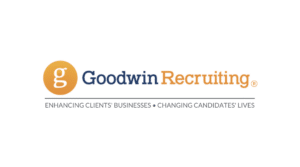
How do I create a resume that positively catches a hiring manager’s attention? And how much information is too much? We live in an era of oversharing on social media via Facebook, Snapchat, Instagram, Tik Tok…the list of options goes on. So, for some candidates looking for work, it stands to reason that they might believe that putting more on their resume is better and gives a stronger impression of their potential candidacy to a hiring manager. That is not quite true, and certain information can hurt a candidate’s chance to be considered for an interview. It is also important to keep in mind that a resume should be only one page in length unless you are writing a CV, or you have a good reason to expound on a long, successful career. Let us focus on what you should leave off that allows you to keep your resume to the point.
Age is not meant for your resume.
What matters to a hiring manager is whether the person has the experience and skills to do the job that they are trying to fill. Your age is not relevant. Yet, too often, we see age given away in a variety of ways. An email address gives away the applicant’s age when they add the year of their birth to it, such as hireme65@yahoo.com, and the client can easily infer that this candidate is 55 years old. Other clues to a candidate’s age are years of graduation from college and when the candidate summarizes with verbiage as such: “Experienced leader with 25 years in the Hospitality field.”
Addressing the address.
In this day, where personal information can easily be researched about any candidate using the internet, we purposely do not include our social security numbers because they are considered private. Still, we often add the physical address of where we live. A potential employer could take the time to Zillow the candidate and form a predetermined idea about their finances based on where they live and how much their house is assessed for. What matters more is the name of the city, state, and zip code of the applicant. When the time comes, you may be asked to fill out an application, and, at that point, adding the physical address is appropriate. Additionally, it is not appropriate or relevant to the job to include your sexuality, marital status, religion, race, and ethnicity. So leave these off your resume.
Keep your resume simple.
To keep a resume down to one page, be mindful of adding superfluous information that does not really tell anyone about you as a candidate and uses up the real estate on your single page. Some of these include adding your references to the resume. Instead, have a reference sheet ready to present when you are asked for them. Be certain to let your references know that they will be contacted in regard to the specific job you applied to. In the same vein, leave off the phrase References Available Upon Request, as this is expected, and using it takes up space. A third thing to leave off or to keep to a minimum is a list of hobbies unless they are relevant to the role that the candidate is applying to, and, at most, these should only take up a couple of lines.
When writing a resume, it might feel necessary to explain why the candidate left a job. Although you may be asked in an interview, do not feel compelled to put the explanation on your resume. It can come across as an excuse, and it is not relevant as to why the client should hire you.
Seek the assistance of a recruiting industry leader.
If you are in a quandary about how to write your resume or what it should include, it will help call an established recruiting company such as Forbes’ Award-Winning Goodwin Recruiting, who has been helping candidates for over 20 years. Our partners can assist you in presenting yourself in the best light to clients. Give us a call and allow us to help you revise your resume and prepare you for your next interview with one of our great clients.
Share This Article














































